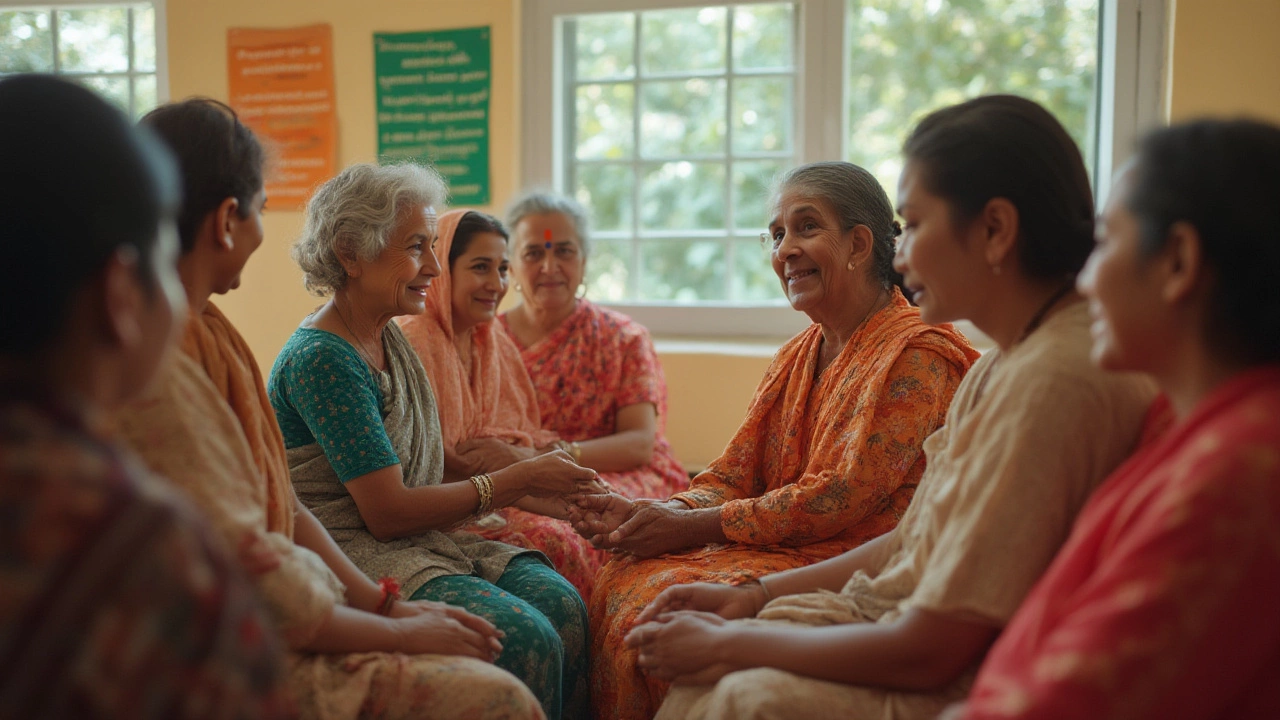Stage 4 Cancer Survival Stories: Facts, Data, and Honest Answers
 Jul, 5 2025
Jul, 5 2025
If someone told you all stage 4 cancer cases are hopeless, they’re lying—or at least, missing the whole truth. The idea that advanced cancer is always a death sentence is stuck in our heads, but real life loves to poke holes in those old beliefs. There are folks walking around right now who once got that terrifying stage 4 diagnosis. Some of them are living their lives for years after, beating the odds with a cocktail of grit, medicine, and science that keeps surprising everyone. The headlines rarely cover these stories because, let’s be honest, fear sells. But the real story runs deeper and is, surprisingly, a bit more complicated.
What Stage 4 Cancer Really Means—And Why It’s Not Always The End
So, here’s the gritty reality: stage 4 cancer means the disease has spread away from where it started. Docs call it metastasis, and they’ll often tell you straight up that the cancer can’t usually be cured, only treated. But here’s where things start to get interesting. Not all stage 4 cancers are equal. There are wild differences depending on where the cancer started, your age, your general health, and whether the cancer mutates in a way that makes it easier (or harder) to hit with treatment. For example, stage 4 breast cancer and stage 4 pancreatic cancer have totally different survival odds.
Let’s talk numbers, because people crave honesty. According to data from the American Cancer Society, the five-year relative survival rate for stage 4 breast cancer is about 29%. That means some people keep going for five years or more after diagnosis. For stage 4 melanoma (skin cancer), the five-year survival rate jumps to about 32%. Meanwhile, advanced pancreatic cancer? Sadly, the five-year survival rate falls under 3%. Hard truth, but each cancer is its own beast. Some are “smolderers”—slower to grow—and some are like lightning, spreading before you even know they’re there.
What’s changed over the last couple of decades is how some of these advanced cancers get tackled. Back in the day, if you had stage 4 anything, you got the same old chemo, crossed your fingers, and hoped for the best. Now, doctors can test your tumor for genetic mutations, then zap those weaknesses with new drugs called targeted therapies. Immunotherapy (teaching your body to hunt down cancer) has turned some cases of stage 4 melanoma from absolutely hopeless to “hey, let’s plan your kid’s graduation.”
Here’s a quick comparison of five-year survival rates by cancer type, based on 2024 data:
| Cancer Type | Stage 4 Five-Year Survival |
|---|---|
| Breast | 29% |
| Colorectal | 15% |
| Lung | 8% |
| Prostate | 32% |
| Melanoma | 32% |
| Pancreatic | 2.7% |
| Ovarian | 17% |
Numbers aren’t destiny, though. Each case depends on a lot, including things like having access to good healthcare and your body’s own resilience. Sure, for some cancers, these odds are terrifyingly low. But for others, like several types of lymphoma, people are living far longer than they were twenty years ago. Some—even with stage 4 cancer—go into remission that lasts for years. Sometimes, doctors even use the word “cured,” which used to be rare in stage 4 circles.

Real People, Real Stories: Survival That Defies Expectations
Let’s get personal for a minute. Numbers matter, but hearing about actual people who stuck around when nobody thought they would? That hits different. For example, there’s a woman known in the cancer community online as “Cancer Warrior.” She was diagnosed with stage 4 colon cancer at 46, told to “get her affairs in order,” and she’s now 12 years out. Treatment wasn’t a walk in the park: endless chemo, a couple of surgeries, and a lot of moments she wanted to give up. She says, “I’m not just living. I’m running marathons now. Go figure.”
Or consider the story of a retired firefighter who got stage 4 lung cancer. His type had a rare mutation. Using a targeted therapy pill (osimertinib), he responded incredibly well. Five years later, he’s still taking his grandkids fishing, with the help of regular checkups and the occasional scan. Not everyone gets this outcome, but it’s more common now than most people realize.
Doctors see these stories, too. Dr. Rebecca Siegel, the lead on the American Cancer Society’s latest report, points out that “some types of metastatic cancer are slowly becoming more like chronic illnesses, not rapid killers. That’s because people can now live years—sometimes many years—with active disease, thanks to new therapies coming out each year.”
“Cancer statistics tell only part of the story. Behind every data point is someone’s mother, brother, or friend fighting for more time—and some are winning battles that seemed impossible just ten years ago.” – Dr. Rebecca Siegel, American Cancer Society, 2024
If you hang out in cancer support forums, the phrase “NED” or “No Evidence of Disease” comes up a lot. What does this mean? Sometimes after a few rounds of modern therapy, scans show no visible cancer anywhere. It doesn’t always mean a cure—cancer can hide well—but some folks stay that way for years. Is it as common as we’d wish? No. But it happens, and when it does, it rewrites someone’s whole future.
Another real kicker: sometimes people survive when science can’t explain why. Maybe a weird immune response, maybe genetics, or the right experimental trial at the right time. Research in 2023 followed 128 long-term survivors of advanced melanoma. Doctors found a few common threads: hitting the cancer hard with immunotherapy, keeping a strong support network, staying physically active, and (believe it or not) maintaining hope.
It’s not just adults, either. Kids with advanced cancers—like some kinds of leukemia—now have much better odds than back in the 90s. Targeted therapies, clinical trials, and better supportive care make all the difference. One mom from Atlanta documented her son’s journey with stage 4 neuroblastoma. After a stem cell transplant and lots of scary nights, he’s now a healthy teen. Makes you rethink what “terminal” can mean.

What Can You Do? Tips, Support, and Making the Most of Every Day
So, let’s say you or someone you know just heard that stage 4 diagnosis. It feels like a punch to the gut. Here’s what actually helps:
- Ask about every treatment option. Don’t just take the first plan at face value. There are new treatments, clinical trials, and combinations popping up every year. A second (or third) opinion can be life-changing.
- Find the right support groups. The emotional beating that comes with stage 4 is serious. Online communities—think Reddit’s r/cancer or the Cancer Support Community—connect patients who know what this feels like. Shared stories and advice often help way more than a pamphlet.
- Track symptoms and side effects. People who stay in close touch with their healthcare team often spot problems sooner. It gives doctors more to work with and can prevent small issues from getting bigger.
- Ask about genetic testing. Many cancers have special mutations that make them sensitive to certain drugs. If you haven’t had genomic testing on the tumor, ask about it. Some insurance covers it, some don’t, but in tough cases, it’s sometimes worth fighting for.
- Consider lifestyle changes. Exercise if you can (even slow walks count), eat what you can tolerate, and find ways to keep spirits up. Studies show people who stay active, even with advanced disease, often handle treatment better.
- Balance hope with plans. Even if odds seem low, there’s value in planning fun things, trips, or family moments—but also being real about what you need if things change. A little preparation can actually lower anxiety.
Here are some useful facts and data to keep hope and sanity in check:
| Fact | Source (2024) |
|---|---|
| Immunotherapy now helps 40% of advanced melanoma patients reach 5 years or more. | JAMA Oncology |
| About 12% of stage 4 colon cancer patients live past 10 years. | National Cancer Database |
| Half of metastatic prostate cancer patients survive at least 3 years post-diagnosis. | American Cancer Society |
| New targeted therapies approved in 2023 helped extend life for some lung cancer patients by 2-5 years longer than old chemo regimens. | Cancer Research UK |
People want guarantees. There are none in late-stage cancer. But there are better odds than before, especially if you push for the best possible care, support, and information. Even patients who don’t go into remission often say the right team—doctors, family, friends—makes everything more bearable. And every year, the list of survivors grows a little longer as medicine catches up to cancer’s old tricks.